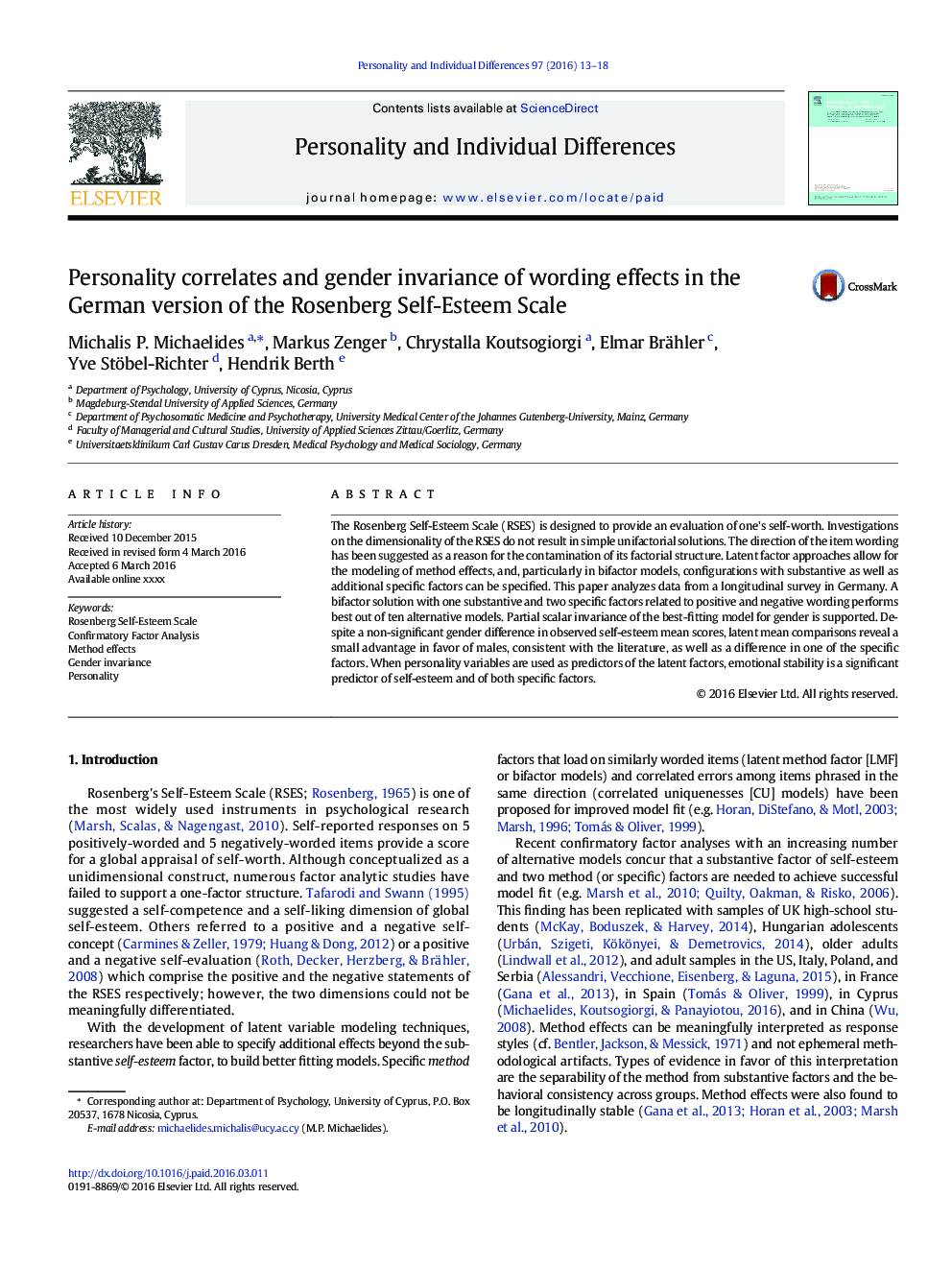| Article ID | Journal | Published Year | Pages | File Type |
|---|---|---|---|---|
| 7249901 | Personality and Individual Differences | 2016 | 6 Pages |
Abstract
The Rosenberg Self-Esteem Scale (RSES) is designed to provide an evaluation of one's self-worth. Investigations on the dimensionality of the RSES do not result in simple unifactorial solutions. The direction of the item wording has been suggested as a reason for the contamination of its factorial structure. Latent factor approaches allow for the modeling of method effects, and, particularly in bifactor models, configurations with substantive as well as additional specific factors can be specified. This paper analyzes data from a longitudinal survey in Germany. A bifactor solution with one substantive and two specific factors related to positive and negative wording performs best out of ten alternative models. Partial scalar invariance of the best-fitting model for gender is supported. Despite a non-significant gender difference in observed self-esteem mean scores, latent mean comparisons reveal a small advantage in favor of males, consistent with the literature, as well as a difference in one of the specific factors. When personality variables are used as predictors of the latent factors, emotional stability is a significant predictor of self-esteem and of both specific factors.
Keywords
Related Topics
Life Sciences
Neuroscience
Behavioral Neuroscience
Authors
Michalis P. Michaelides, Markus Zenger, Chrystalla Koutsogiorgi, Elmar Brähler, Yve Stöbel-Richter, Hendrik Berth,
